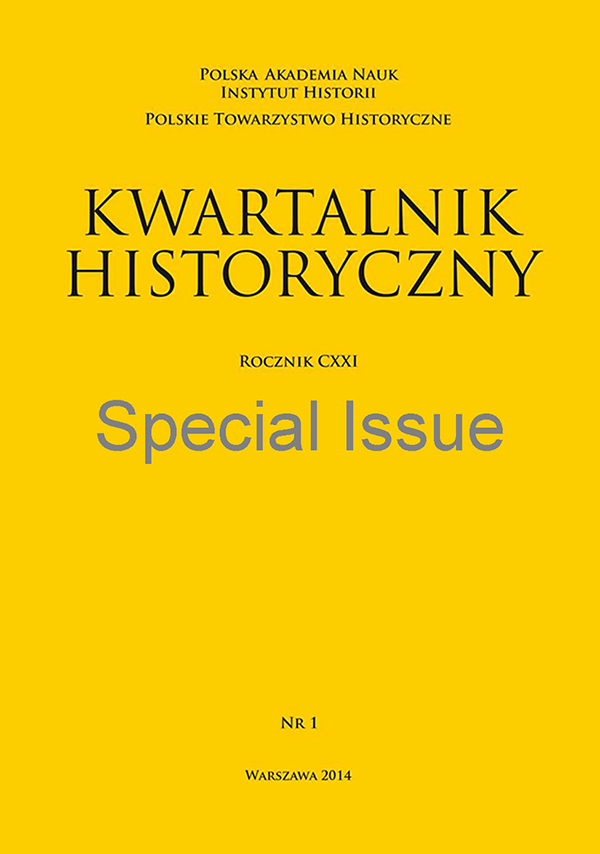A Dialogue of Republicanism and Liberalism: Regarding Anna Grześkowiak-Krawawicz’s Book on the Idea of Liberty
DOI:
https://doi.org/10.12775/KH.2014.121.SI.1.08Sažetak
Regina Libertas (Gdańsk, 2006) is the magnificent culmination of Anna Grześkowiak-Krwawicz’s work on Polish political thought in the eighteenth century. It is based on a profound knowledge and understanding of treatises, pamphlets and other political texts reaching back to the sixteenth century. It steers a careful course between an abstract history of ideas and research on political culture, which would involve an unmanageable amount of research on mostly unpublished sources. The author situates the Polish idea of freedom squarely within the early modern republican, or ‘neo-Roman’ tradition explored by intellectual historians such as Quentin Skinner and John G. A. Pocock. According to this theory, the ‘negative’ liberty of the individual citizens from coercion (the essence of the liberal idea of freedom) depends on their ‘positive’ liberty to participate in the political process. In the Polish-Lithuanian case this entailed a panoply of restrictions on the monarch. Grześkowiak-Krwawicz presents Polish thought on liberty in six thematic parts covering: ‘Old and new freedom’; ‘Whence came liberty?’; ‘Pillars of freedom’; ‘Liberty in peril’; ‘Liberty and independence’; ‘Man and liberty’; and ‘Myths and dilemmas of liberty’. They are followed by a final part on the revitalized idea of freedom during the Kościuszko Rising of 1794. Regina Libertas is written in an engaging manner that encourages dialogue at many levels. The author of this review article takes up that invitation, drawing attention to the contributions of thinkers and statesmen, including King Stanisław August Poniatowski, whose writings and speeches pointed towards a (proto-)liberal, rather than a republican idea of freedom. These thinkers remained in a minority compared to decided republicans, but they exercised significant influence on reforms enacted in Stanisław August’s reign, especially the Constitution of 3 May 1791.
Downloads
Objavljeno
How to Cite
Broj časopisa
Rubrika
Stats
Number of views and downloads: 466
Number of citations: 0



